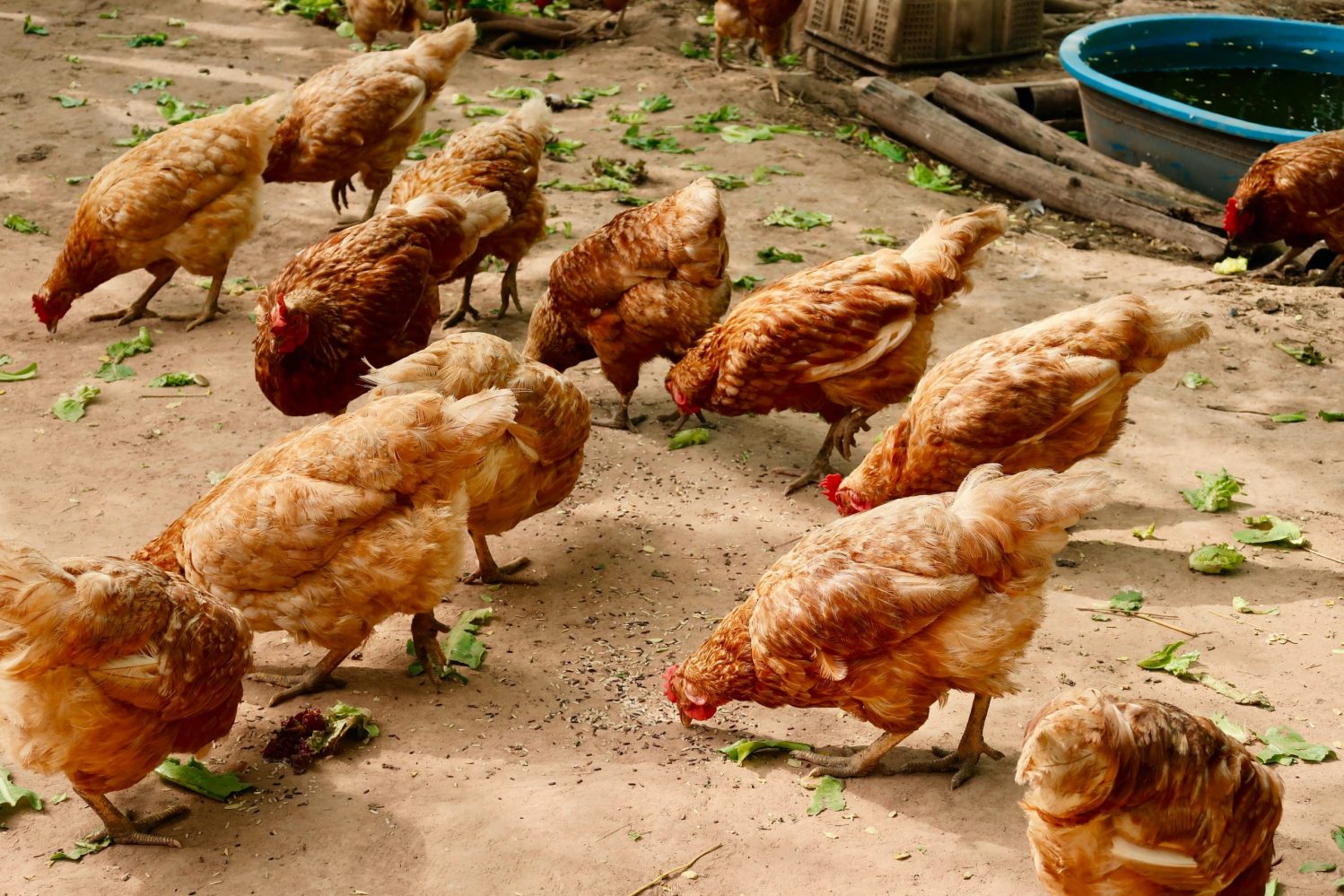How often should you clean your chicken coop? It’s a question that all chicken owners must answer. Keeping your chickens healthy and happy means having a coop that is cleaned regularly. This article offers expert advice on chicken husbandry to help you decide how often to clean your chicken coop. Learn the best practices for keeping your chickens healthy, comfortable, and safe.
What is Chicken Husbandry?

Chicken husbandry is the practice of raising chickens for the purpose of obtaining eggs, meat, or both. It encompasses many aspects, including housing, nutrition, health, and genetics. It also involves proper care, such as cleaning the chicken coop and providing a safe, healthy environment for the chickens.
A well-maintained chicken coop is essential for the welfare of the chickens. Regular cleaning is important to maintain a healthy environment for your flock. It is important to clean the chicken coop on a regular basis in order to prevent diseases and ensure the health of your chickens. Additionally, cleaning the coop helps keep the coop odor-free and sanitary.
The frequency of how often you should clean your chicken coop depends on the number of chickens you have, the size of the coop, and the weather conditions. Generally, you should clean your chicken coop at least once a week. If you have a larger coop, you may need to clean it more frequently to keep it clean and hygienic.
In addition to cleaning the coop, it is important to provide the chickens with a balanced diet, adequate space to roam, and a safe environment. Also, it is important to monitor the health of your chickens, as well as their egg production, to ensure they are well-cared for. Proper chicken husbandry is essential for the health and well-being of your flock.
How Often Should You Clean Your Chicken Coop?
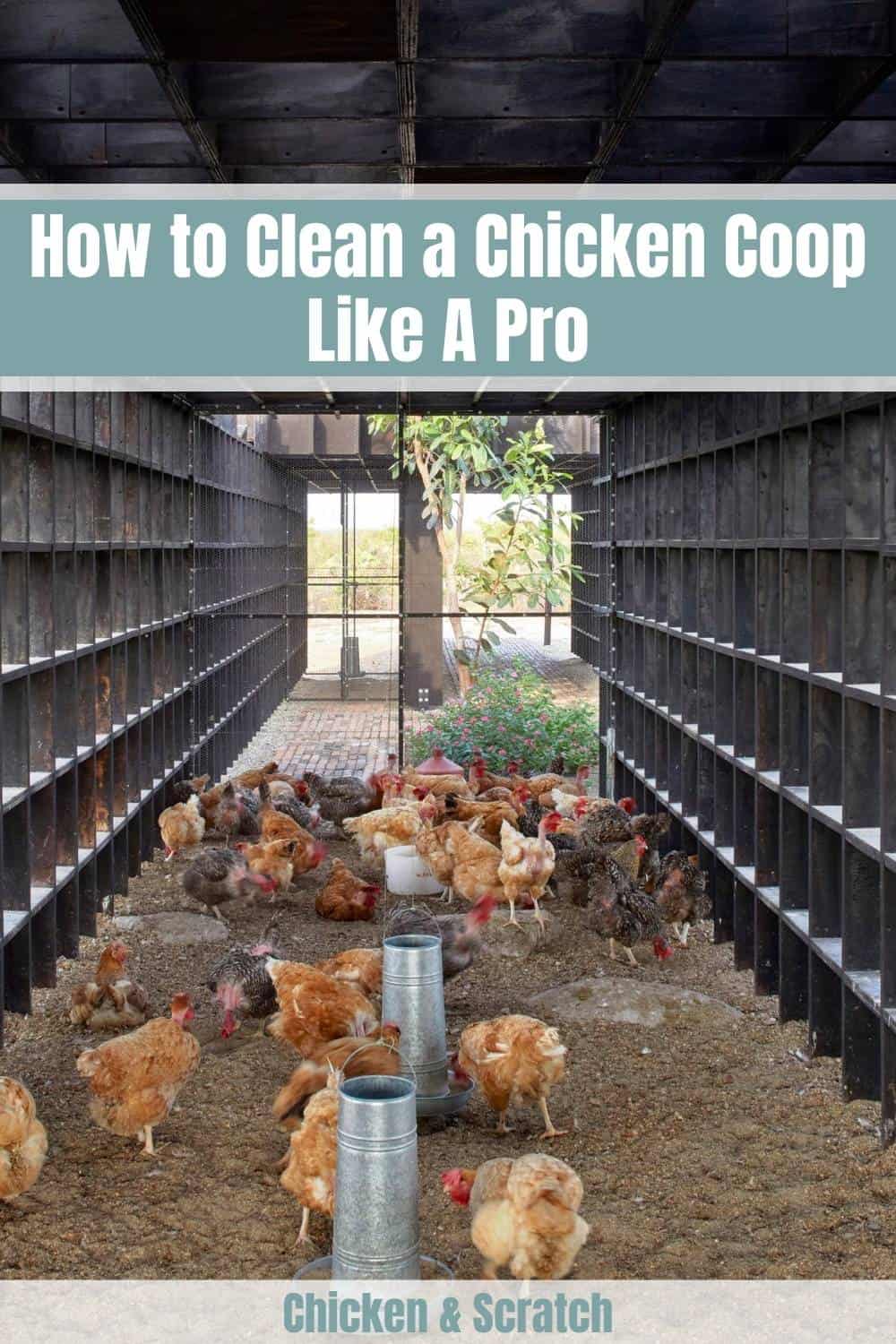
Cleaning your chicken coop is essential for the health of your chickens and for the overall hygiene of your property. Knowing how often to clean a chicken coop is essential for keeping your chickens safe and healthy. Here are some tips on cleaning your chicken coop:
- Weekly: Remove any droppings, bedding, and food scraps from the coop. If you’re using wood shavings as bedding, you may want to replace them with fresh shavings once a week.
- Monthly: Clean the walls, floors, and roosts of the coop with a mild detergent and water. If necessary, use a pressure washer to remove any tough stains.
- Twice a year: Deep clean the coop by removing all bedding, scrubbing down the walls and floors, and disinfecting the area with a safe cleaner.
It’s also important to check the coop for structural damage and to repair any broken boards or gaps in the walls. This will help keep predators out and ensure your chickens have a safe and healthy environment to live in.
The Benefits of Cleaning Your Chicken Coop Regularly
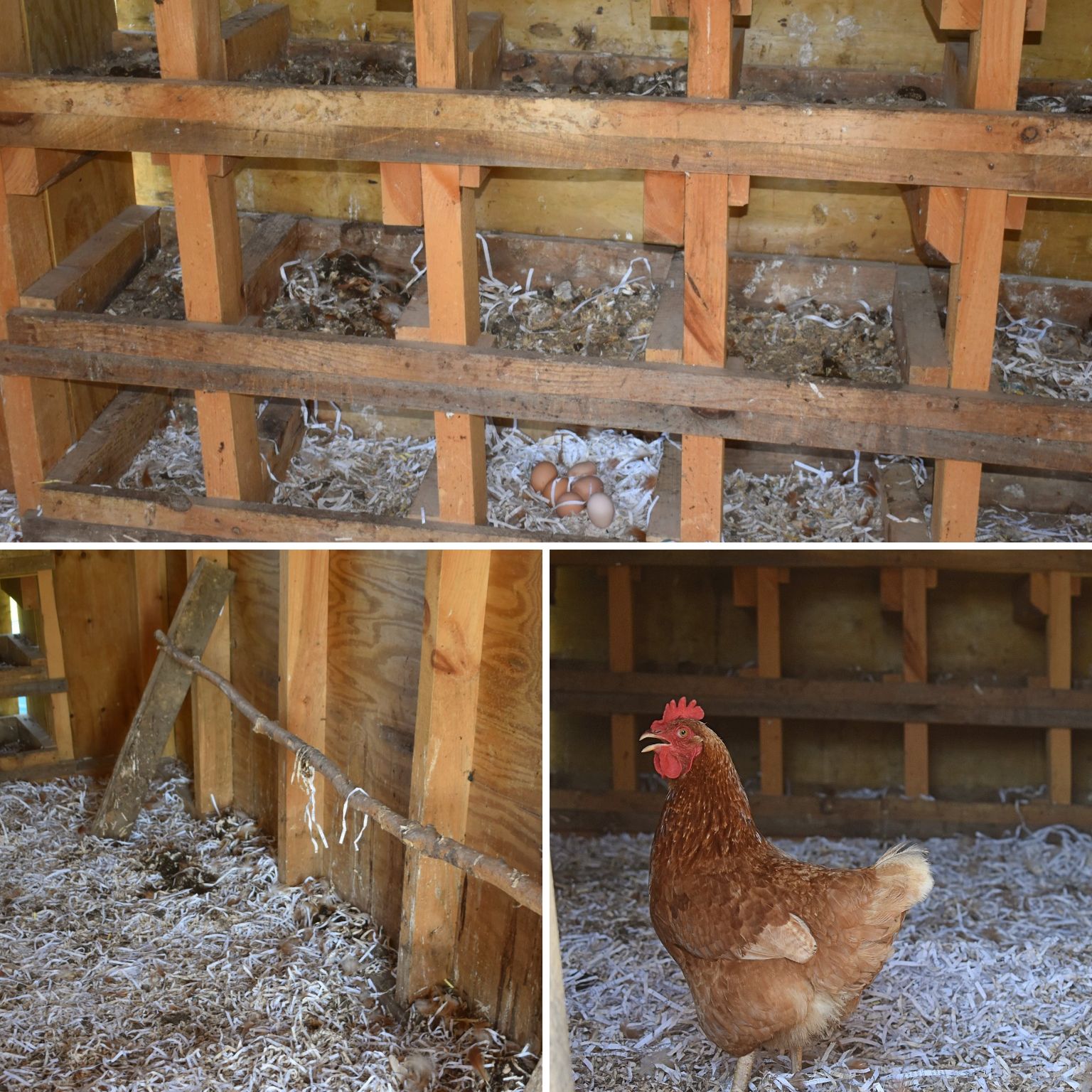
Cleaning your chicken coop is an essential part of chicken husbandry. Keeping your coop clean ensures your chickens are healthy, productive and happy. Here are some of the benefits of regularly cleaning your chicken coop:
Reduces Disease Risk
| Disease | Benefit |
| Salmonella | Removing droppings reduces the spread of Salmonella. |
| E. coli | Regularly cleaning prevents the spread of E. coli. |
| Newcastle Disease | Cleaning the coop regularly prevents the spread of Newcastle Disease. |
| Avian Influenza | Reduces the spread of Avian Influenza. |
Maintains Good Air Quality
A clean coop ensures good air quality, reducing the risk of respiratory illnesses. Removing old bedding, droppings and feathers helps to improve air quality and reduce the risk of respiratory diseases.
Prevents Parasites
Cleaning the coop regularly reduces the build-up of parasites and other pests which can affect your chickens’ health.
Reduces Odors
Regularly cleaning your chicken coop helps to reduce unpleasant odors.
In conclusion, cleaning your chicken coop regularly is essential for keeping your chickens healthy, productive and happy. Cleaning the coop regularly reduces the risk of disease, maintains good air quality, prevents parasites and helps to reduce odors.
The Risks of Not Cleaning Your Chicken Coop Regularly
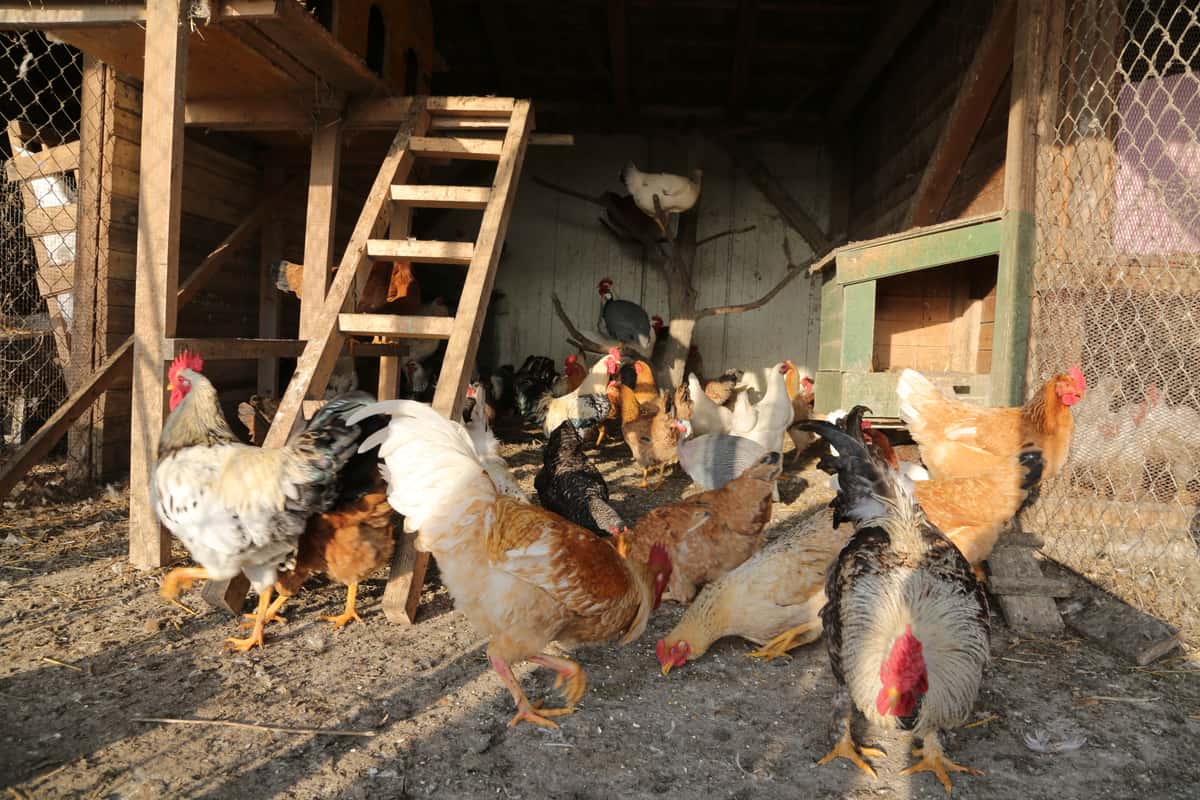
Failing to clean your chicken coop regularly can lead to a number of problems that can significantly reduce the quality of life of your chickens and potentially their lifespan.
Parasites and Diseases – Chicken droppings, old food waste and other debris left in the coop can quickly become a breeding ground for parasites and diseases, such as lice, mites, coccidiosis and avian influenza. Not only can it be detrimental to the health of your chickens, but it can also spread to other birds in the area.
Odors – Dirty coops can quickly become smelly and the foul odor can become a nuisance for neighbors.
Unsanitary – Not only is it important for the health of your chickens, but it is also important for the safety of humans who come into contact with the coop. Unsanitary conditions can lead to a variety of human illnesses.
Unhealthy Living Conditions – If the coop is not cleaned regularly, the chickens may be exposed to an unhealthy living environment. This can lead to high levels of stress and anxiety, which can have a significant impact on the longevity and quality of life of the chickens.
Unwanted Pests – Leaving food waste and debris in the coop can attract rats, mice, snakes, and other unwanted pests which can cause further health risks to your chickens.
It is essential to clean your chicken coop regularly to ensure the health, safety and wellbeing of your chickens. How often do you clean your chicken coop?
Tools and Supplies Needed for Cleaning a Chicken Coop
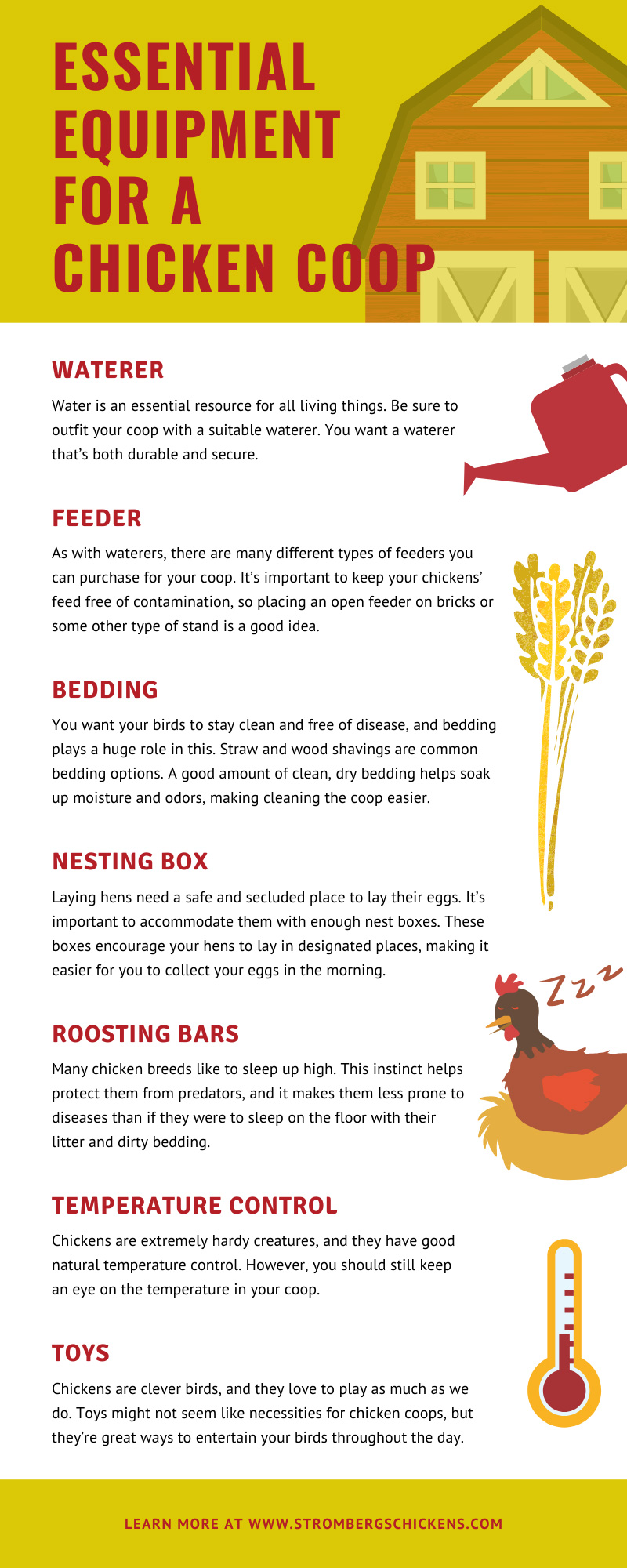
Cleaning a chicken coop is an essential part of caring for your flock. To ensure the health and wellbeing of your chickens, it is important to clean their coop regularly. To do so, you’ll need the following supplies:
- Gloves: It’s important to wear gloves to protect your hands from dirt, germs and bacteria.
- Broom and Dustpan: Use a broom and dustpan to sweep up the dirt and debris in the coop.
- Vacuum: A vacuum can help to remove dust and debris from hard-to-reach areas.
- Cleaners: Use a disinfectant cleaner to wipe down the walls, floors and other surfaces. Additionally, you’ll need a mild detergent for scrubbing the coop.
- Sponges: A few sponges will come in handy for scrubbing and cleaning the surfaces of your chicken coop.
- Scrub Brush: A scrub brush will help to remove any stubborn dirt or grime.
- Disinfectant: Use a disinfectant to sanitize the coop after cleaning.
By having the right tools and supplies on hand, you’ll be able to keep your chicken coop clean and healthy. How often you should clean your chicken coop depends on the size of your flock and the size of the coop. Generally speaking, it’s a good idea to clean your coop every few weeks to ensure the health and safety of your chickens.
Step-by-Step Guide to Cleaning a Chicken Coop
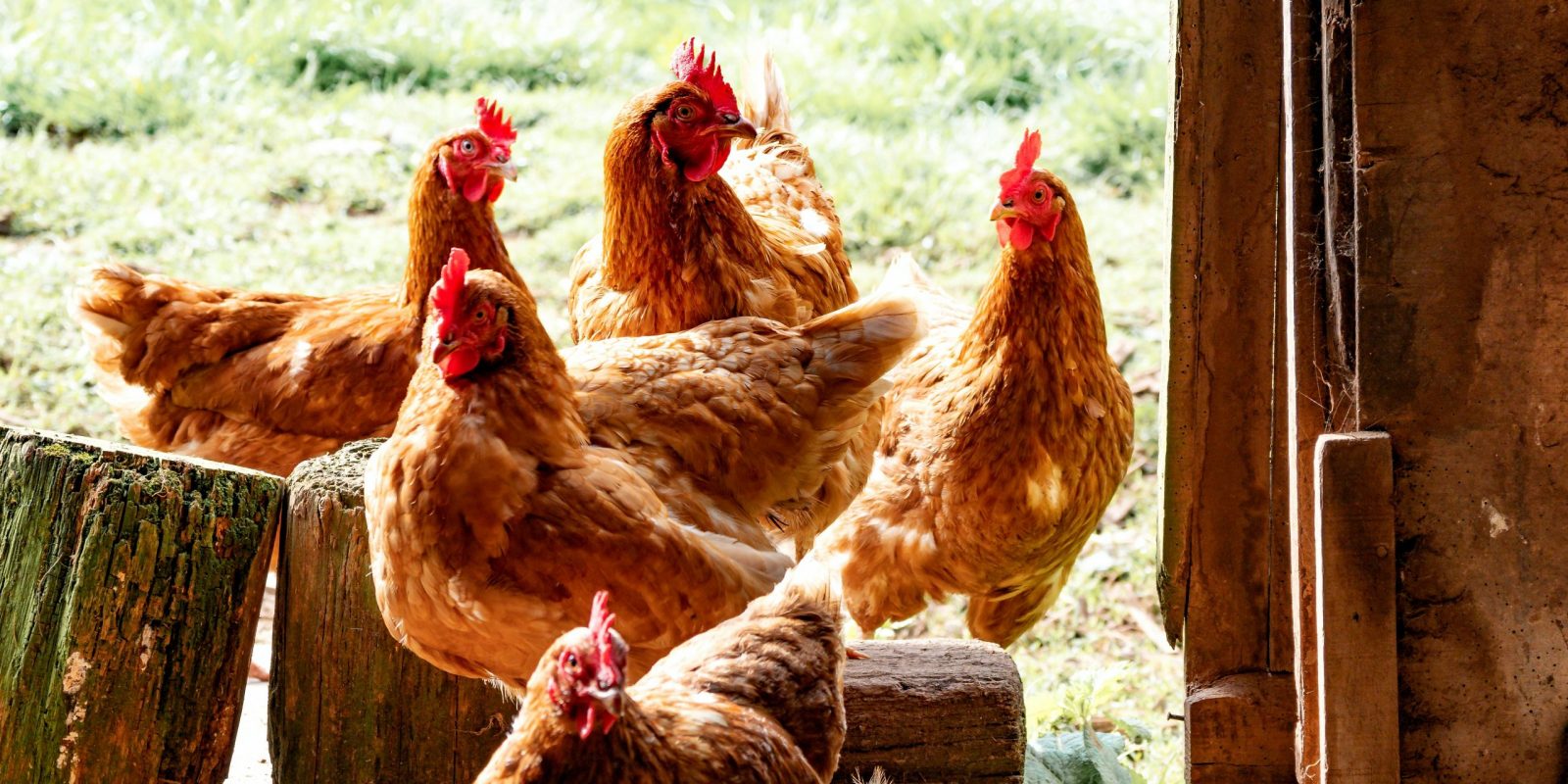
- Remove Debris: Start by removing all of the bedding, manure, feathers, and other debris from the coop and surrounding areas, including the run and other outdoor areas. Make sure to get rid of any eggs that have been laid in the coop.
- Disinfect: Using a diluted bleach solution, spray the entire coop and surrounding areas, including the run and other outdoor spaces. Allow the solution to sit for 15 minutes before rinsing with water. Make sure to rinse thoroughly to avoid leaving any bleach residue.
- Sanitize: After the coop and surrounding areas have been disinfected, you’ll want to sanitize the areas to prevent the spread of bacteria and other pathogens. Use a diluted vinegar solution to spray the entire coop and surrounding areas.
- Replace Bedding: Once the coop and surrounding areas have been sanitized, it’s time to replace the bedding. Use straw, hay, or wood chips to cover the floor of the coop and surrounding areas. Make sure to leave a few inches of bedding to help absorb moisture and odors.
- Clean and Disinfect Feeders and Waterers: Chicken feeders and waterers should be cleaned and disinfected on a regular basis to prevent the spread of bacteria and other pathogens. Begin by removing all of the old feed and water from the feeders and waterers. Then, using a diluted bleach solution, spray the entire feeder and waterer before rinsing with water. Allow the solution to sit for 15 minutes before rinsing with water.
- Clean and Disinfect Nesting Boxes: Nesting boxes should also be cleaned and disinfected on a regular basis. Begin by removing all of the eggs and debris from the nesting boxes. Then, using a diluted bleach solution, spray the entire nesting box before rinsing with water. Allow the solution to sit for 15 minutes before rinsing with water.
- Allow Coop to Dry: Once the coop has been cleaned and disinfected, it’s important to allow the coop to dry completely before adding the bedding and allowing the chickens to re-enter the coop. This will help to prevent the spread of bacteria and other pathogens.
Cleaning Frequency for Different Types of Chicken Coop
- Traditional Coops: Clean out the bedding, nest boxes, and roosts once every three months, and clean out the entire coop once every six months.
- Mobile Coops: Depending on the size of your mobile coop, it should be cleaned daily or every few days.
- Small Coops: Clean out the bedding, nest boxes, and roosts every week and clean out the entire coop once a month.
- Large Coops: Clean out the bedding, nest boxes, and roosts twice a month and clean out the entire coop once every two months.
Frequently Asked Questions
What Materials Should Be Used to Clean the Chicken Coop?
It is important to use the right materials when cleaning your chicken coop. To ensure optimal hygiene, use the following items:
- A stiff broom or brush – to sweep away built-up dirt, feathers, and other debris.
- Vinegar – to disinfect and remove odors.
- A mop – to scrub off any built-up dirt or residue.
- A scrub brush – to reach any hard-to-reach areas.
- Baking soda – to neutralize odors.
- Bleach – to disinfect and kill bacteria.
Make sure to wear protective gear such as gloves, a respirator, and eye protection when using any chemical-based cleaning materials. Additionally, all materials used should be washed and disinfected when finished, and stored in a safe area away from children and pets.
How Often Should The Bedding In The Chicken Coop Be Changed?
- Weekly: Bedding should be checked weekly to ensure it is still dry and there are no signs of pests. If the bedding is damp, replace it as soon as possible.
- Bi-Monthly: Every two months, the bedding should be removed and replaced with fresh bedding. This ensures that the chickens have a comfortable, clean place to sleep.
- Seasonally: Depending on the climate and the season, the bedding should be changed at least once a year. In warmer climates, this may need to be done more often.
Replacing the bedding in the chicken coop is essential for the health and comfort of your chickens. It should be done regularly to ensure the chickens have a clean and comfortable place to sleep. The frequency of changing the bedding depends on the climate and season, but a general guideline is to do it weekly, bi-monthly, or seasonally.
What is the Best Way to Disinfect the Coop and its Contents?
A good practice for disinfecting a chicken coop is to first remove all the chickens, nests, and bedding. Then, use a mixture of one part bleach to nine parts water to scrub down all surfaces, including walls, floors, and perches. This should be done at least once a year or more often if needed. Additionally, any bedding or other materials that can be washed should be washed with hot water and detergent. Finally, replace the bedding and other materials with fresh, clean materials.
Are there any special considerations for cleaning a chicken coop in cold weather?
When cleaning a chicken coop in cold weather, it is important to ensure that the temperature outside is above freezing. Cold weather can cause water to freeze, making it difficult to clean the coop. It is also important to wear warm clothing and gloves to prevent frostbite. Additionally, it is important to provide adequate ventilation and insulation to prevent drafts. Finally, bedding should be changed more frequently in cold weather to reduce the risk of respiratory illness in the chickens.
Are There Any Safety Precautions to Consider When Cleaning a Chicken Coop?
Wear protective gear: Wear long sleeves and pants, closed-toe shoes, and gloves to protect your hands and skin from bacteria, parasites, and other contaminants.
Use a mask: Wearing a face mask can help protect you from inhaling particles from the coop.
Avoid contact with birds: Taking precautionary measures to keep your hands and clothing away from the birds and their droppings will help protect you from potential illnesses.
Handle manure carefully: Use a shovel to remove manure from the coop and dispose of it appropriately.
Clean up spills: Use a cleaner that is specifically designed for use in a chicken coop to sanitize any spills.
Sanitize tools: Clean and sanitize any tools used in the coop after use.
Ventilate the coop: Open windows and doors to let fresh air in and any dust or particles out of the coop.
Wash hands: Be sure to wash your hands thoroughly after handling the coop or the chickens.
Conclusion
Clean your chicken coop regularly and frequently to ensure the health and well-being of your chickens. A clean coop helps to maintain a healthy environment, prevent disease, and keep your chickens safe and happy. Cleaning your chicken coop should be done at least once a month and more often in areas with large fluctuations in temperature and humidity. Make sure to clean out bedding, remove debris and droppings, and disinfect as necessary. With regular and proper maintenance, you can ensure that your chicken coop is a safe and healthy home for your chickens.
